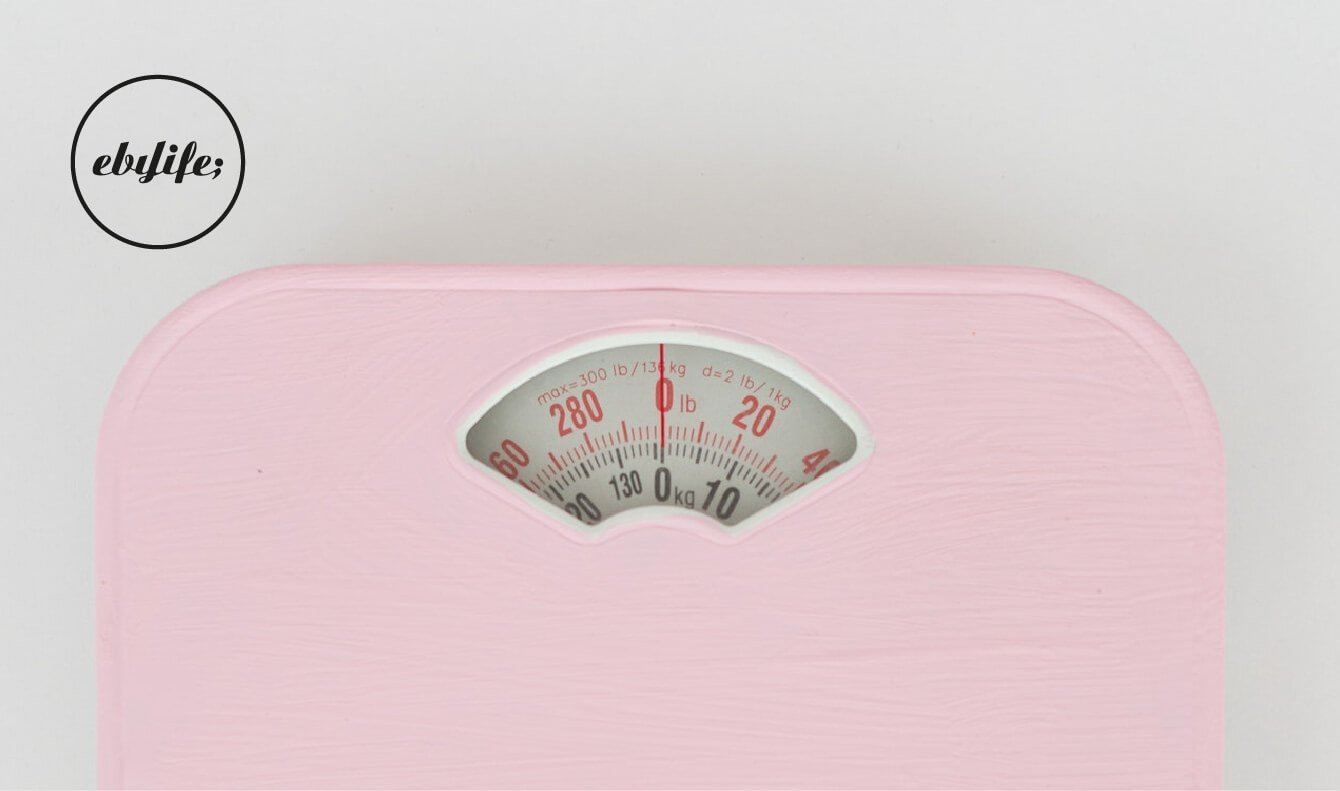8 Signs you may be obsessed with your weight
By Martin Ebner, Head PT and sports nutrition specialist at ebylife
Do you find that your mood, lifestyle and even relationships suffer as a result of your obsession to reduce that seemly all-important number on the scales?
As a personal trainer, I've worked with a lot with clients who obsess and use their weight as the decisive measurement of progress or failure. While, in some cases, weight can be used as an effective tool to manage progress and results, if you find that the number on the scales is beginning to negatively affect your mood and dictate your lifestyle choices, it may be that you're placing too much emphasis on your weight.
Here are 8 signs that you may be obsessed with your weight and a few suggestions on how to manage it.
1. You weigh yourself every day
You weigh yourself in the morning, then again after breakfast, before and after you pee, straight after the shower and then once again before bed. If this sounds like you, it's quite possible that you're developing an unhealthy attitude towards your weight.
Unless you have a reason to weigh yourself every day, try not to. Weight naturally fluctuates throughout the day, week and even month so if you are constantly weighing in at different times, it's likely that you'll get an inaccurate reading which can often leave you confused and frustrated.
If you must weigh yourself, try to do it once a week at the most, first thing in the morning and before breakfast.
Related: Forget the scales – Alternative ways to measure progress
2. You count every calorie
While keeping a food diary can be useful, if you religiously count every calorie, it can counteract intuitive eating which can encourage you to choose foods based primarily on their calorie content.
Instead of basing what you eat on calories alone, try to focus on more important aspects of a healthy diet like choosing fresh foods over processed, getting a healthy balance of macronutrients (carbs, protein and fats) and micronutrients (vitamins and minerals) and even your own sense of enjoyment.
3. You obsess over calories burned during workouts
Exercise is undeniably good for burning calories but when your sole purpose for working out is to burn off last night's bottle of wine or cheat meal, it could be a sign that you're obsessing over the wrong aspect of your workouts.
Instead of focusing on creating a calorie burn large enough to relieve you of any guilt, try to shift your focus onto something more proactive like workout variety and intensity, a new personal best or improving your exercise technique. By focusing on something less scrutinizing, you might find you get much more enjoyment out of exercise.
Related article: 5 training methods to take your fitness to the next level
4. You think of food as good or bad
Unfortunately, due to misleading information and crash diets that heavily restrict and prohibit certain food groups, it's easy to see why so many people are developing a negative attitude towards certain food groups.
By placing these so-called good and bad foods into categories, it gives them far too much importance which can be detrimental when it comes to good dietary choices. While eating 5 chocolate bars and only processed food is obviously bad, it's important to note that there are no foods in moderation that are inherently good or bad.
The best diet is one that is both long-term and that promotes a healthy balance of all the food groups.
Related: 5 reasons to avoid crash diets
5. You skip social events
If you find that you're turning down social events and isolating yourself from friends, family and the things you most enjoy in order to prioritize weight loss on a regular basis, this is a pretty big warning sign that you're letting your infatuation with your weight dictate your lifestyle.
Spending time with friends and family is a great way to focus on something other than your weight and can help put matters into perspective. Make sure to allow at least one night a week to be social.
6. You use strange methods when you eat
You only use a tablespoon or chopsticks when you eat, you can't eat carbs after 5 pm or you chew every bite 32 times (Believe it or not but that's what my gran used to tell us).
Having strict mealtime rules can become an issue when used as a way to exert control. If you feel like every meal must be tightly controlled in order to feel good about yourself, it's a sign that you're taking things too far.
To combat these strange eating methods, eat more regularly with friends and family, watch your favorite Netflix show while you eat or simply try and focus on the taste and enjoyment of your meals.
7. You fetishize skinny pics and compare yourself to a younger thinner you
It's one thing to want to lose a few extra pounds to look your best for a wedding or special occasion but if you find yourself stalking size 0 (likely photoshopped) models on Instagram or are forever reminiscing over a younger and slimmer you, it could quickly become an unhealthy obsession.
Instead of comparing yourself to you 20 years ago or Victoria Secret models, try to focus on the now and be realistic about what you can achieve and how quickly. Age, health and genetics all play a powerful role in your ability to manage a healthy weight and if you compare yourself to a young Britney Spears, you will drive yourself crazy!
8. You're always up to date with the newest diet and exercise craze
If you click on every new weight loss headline promising quick six-pack abs or extreme weight loss in record time, stop reading these articles and talk to a professional instead. As a society, we're impatient and will believe whatever we read. Headlines attract readers and therefore it's in the interest of these so-called health and fitness publications to pray on the insecurities of regular people. As a general rule, if it sounds too good to be true, it probably is!
Summary
If you find that your weight is getting the better of you, try to put things into perspective. Remember, weight is, after all, just a number and can often be misrepresentative of a healthy diet and lifestyle.
Try not to worry about calories but instead focus on eating a healthy balance of everything your body needs to function properly.
If you are worried that you might have a problem, try talking with a friend, family member or seek help and guidance from a health care professional. The sooner you can address a potential obsession with weight, the more straightforward it will be to resolve.


